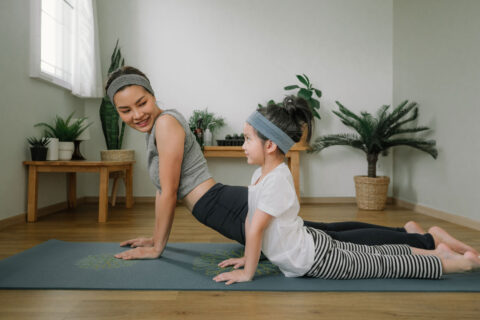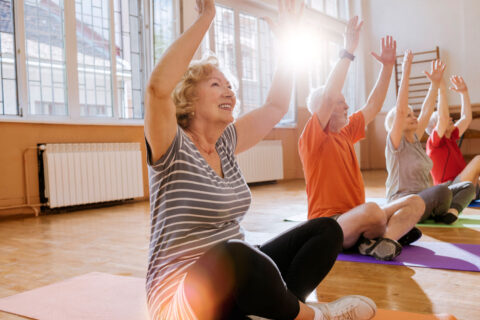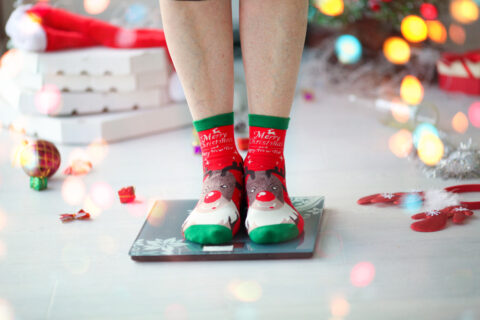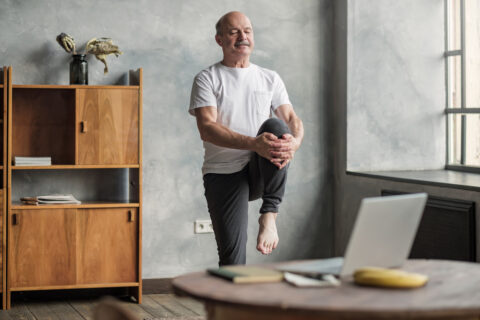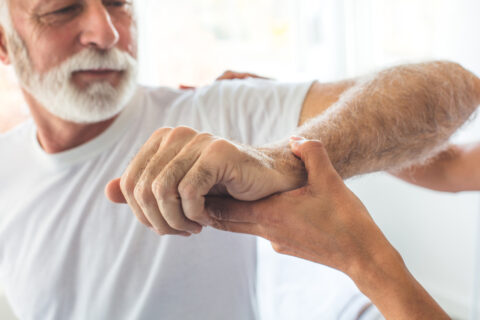Menopause is a natural process in which a woman’s ovaries will stop working, and while it’s something that comes to all women, the transitional symptoms can be debilitating. This transition period is otherwise known as perimenopause, which can impact women both physically and emotionally. The entire perimenopausal stage can last anywhere from two to 10 years, leaving many women feeling helpless when it comes to managing their symptoms for years on end.
Often, women experiencing perimenopause turn to medical professionals for help, whereby they’re commonly treated with hormone replacement therapy and antidepressants. While these treatments work for some women, for others, they can worsen their existing symptoms, such as hot flushes or mood swings. As a result, millions of women globally are searching for methods of handling their perimenopausal symptoms so they can go about their day-to-day lives.
If hormone replacement therapy and antidepressants aren’t for you, movement may be just what you need to bear the symptoms of perimenopause. After all, we should never underestimate the power of our bodies and what they allow us to achieve.
Combatting joint and muscle aches
Firstly, joint and muscle aches are common perimenopausal symptoms. This is because oestrogen protects joints and reduces inflammation; during perimenopause, a woman’s oestrogen levels drop, which can make it more painful to move freely. Due to this pain, a woman can feel deflated, chipping away at her confidence which in turn reduces her desire to move.
Instead of being defeated by joint and muscle aches, we encourage perimenopausal women to incorporate gentle movement into their routines. Without regular movement, your joints and muscles will cease up, resulting in more greater discomfort. Running on the treadmill until you’re panting and dripping with sweat is the last thing you need to be doing, especially if you’ve never exercised before. Excessive exercise ay this stage of your life can actually lead to increased inflammation. Gentle stretches and walking can go a long way in maintaining your mobility.
Managing mood changes
One thing that gets women down during perimenopause is that they find themselves experiencing the mood swings of a teenager. Their hormones are all over the place, making it much more difficult to monitor and manage emotions. Furthermore, having to endure perimenopausal symptoms, day in and day out, is exhausting and to make matters worse, perimenopausal women often experience insomnia. So, it’s no wonder that women going through perimenopause are much more irritable than usual.
The beauty of exercise is that it provides us with a natural high, triggering a release of dopamine and serotonin. Although it’s tempting to retreat to your bed and indulge in comfort food when you’re feeling down, this could be doing more harm than good for both your physical and emotional well-being. Getting yourself psyched up for a movement session can sometimes feel like the most difficult thing in the world, but it’s often exactly what you need to combat the perimenopausal blues.
Confronting weight gain
Perimenopause results in declining oestrogen levels, which can contribute to weight gain. What’s more, the stress and fatigue caused by these oestrogen fluctuations can leave perimenopausal women craving a “quick fix” in sugary snacks. Consequently, many women notice significant weight gain during perimenopause.
It goes without saying that in order to lose weight, you need to move more. This doesn’t mean that you need to be pumping iron at the gym seven days a week; as much as a 20-minute daily walk can make a world of difference to your physical health, as well as your mental well-being.
Develop a Movement Plan with Be You
While a lot of us know that we need to incorporate movement into our lives, knowing what to do and how to do it is another story. Here at Be You, we assess your personal situation to develop a bespoke movement plan that allows you to reach your goals. Contact Be You about constructing a movement programme that will help you tackle your perimenopausal symptoms, one step at a time.

